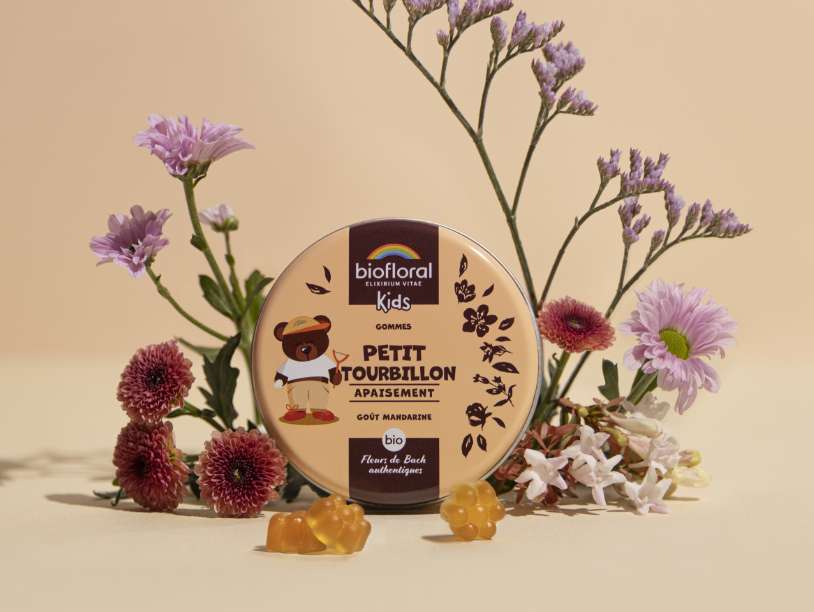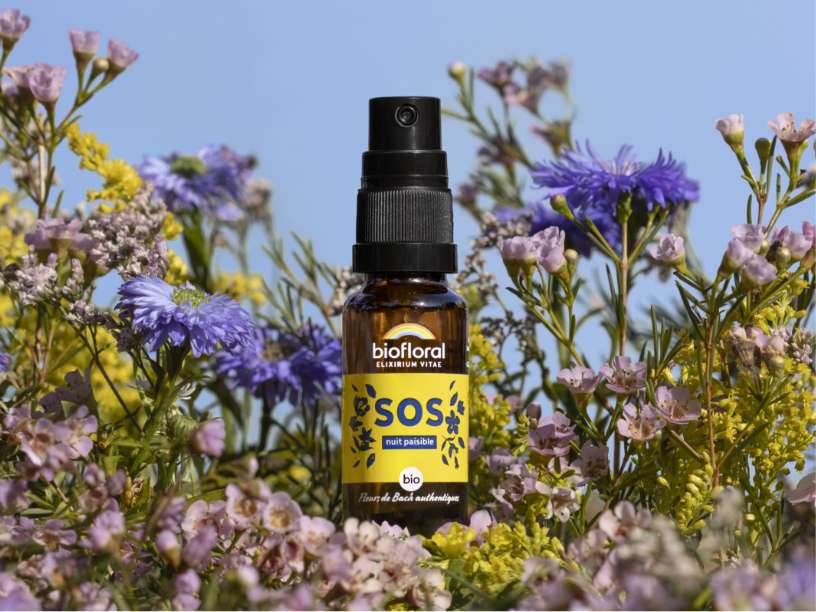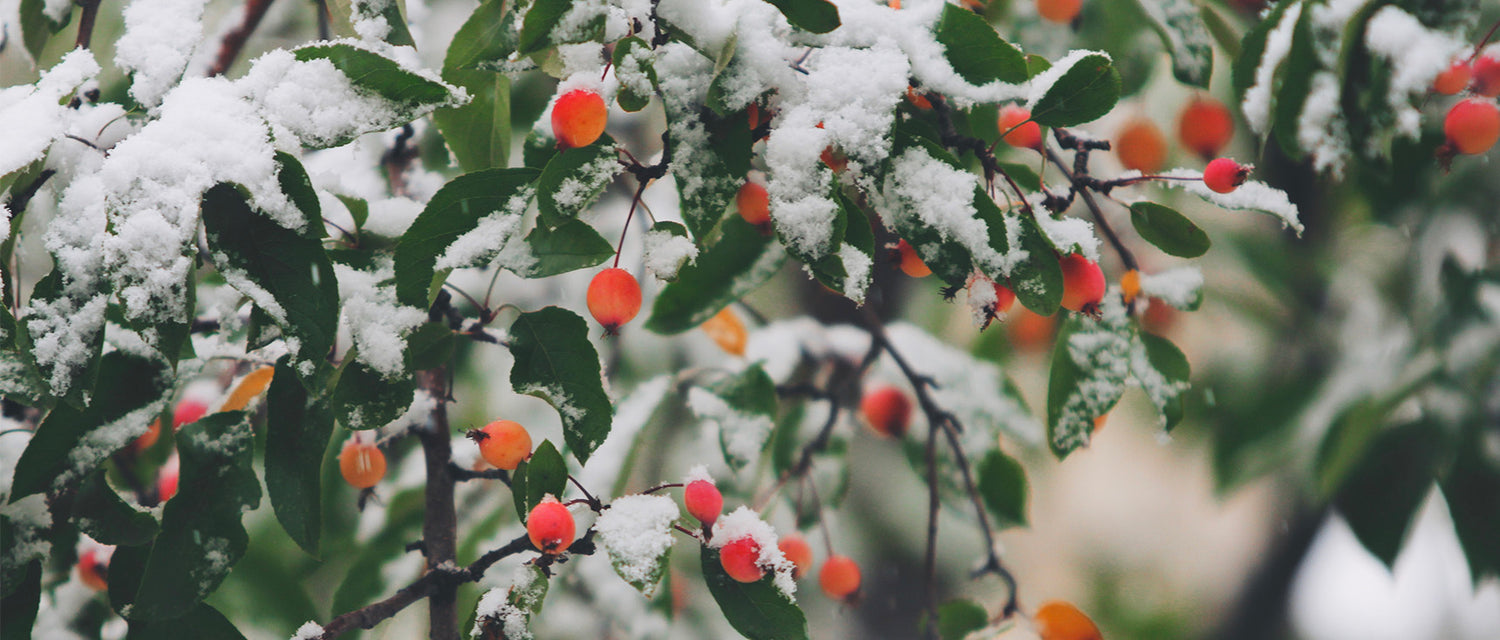Certain plants are particularly recommended as winter approaches to prevent and naturally treat our little daily worries. All that remains is to choose the ones that suit you best and are best suited to the situation encountered. In this article, we have selected three mid-mountain plants that are essential to best prepare for winter. Discover them!
Winter plants
Thyme, Scots Pine and Globulous Eucalyptus are medium-sized plants known to clear the airways and support the proper functioning of the respiratory system. They are traditionally used in ENT infections: bronchitis, colds, coughs, sinusitis or even tonsillitis. Discover their benefits without further delay!
Thyme
We can't do an article on winter plants without mentioning Thyme! Thyme is a small shrub belonging to the Lamiaceae family, it is native to Europe and southern areas. It has very small leaves and its flowers formed in spikes vary from white to pink. Its use dates back to the dawn of time. Indeed, in ancient Greece, Thyme was burned as incense in front of the altars of the gods. This plant can be used in herbal teas, macerated in olive oil, inhaled or even applied to the skin.
There are several types of common thyme, each has its specific properties but what they have in common is to effectively fight infections, revitalize, purify the intestines and strengthen immunity. Thyme is also widely used in herbal medicine for its properties on the respiratory sphere. Its essential oil has long been recognized for its broad spectrum of anti-infectious action. Depending on the infection and the person, the chemotype will need to be selected.
When using its essential oil, we will favor the thujanol chemotype because it offers excellent results on all infections at all levels of the body, and particularly on tools and sinusitis in the ENT sphere, on tonsillitis. , tracheitis and laryngitis of the upper respiratory tract as well as bronchitis.
Common Thyme is the anti-infective, symbolic of coughs. It is an ally against colds and provides a soothing influence on the respiratory tract. It is therefore very interesting in winter when viruses and microbes circulate more easily.
Tip for dealing with tonsillitis, laryngitis, tracheitis, pharyngitis:
Apply 2 drops of Thujnaol Common Thyme Essential Oil diluted in honey, 3 times a day orally
The Scots Pine
The Scots pine is a species of tree in the Pinaceae family. Its trunk is covered with scaly bark and the leaves are persistent and rigid, they resemble needles joined in pairs by a common sheath. It is a mythical tree in the Far East, it symbolizes life, longevity and immortality. No wonder we recommend it to prepare for the approach of winter! The buds and sometimes the resin are used for their diuretic, balsamic, expectorant and bronchial antiseptic properties. It is found in different forms: essential oil, in decoction to produce syrups or cough drops or even in bud macerate.
Scots Pine provides an Essential Oil known for a long time by our grandmothers, who already at the time benefited from the balsamic action on the bronchi by inhaling this essential oil from northern climates. Indeed, it has been recognized since Hippocrates and Greek Antiquity for treating diseases of the respiratory system.
Scots pine is the protector of the bronchi par excellence. It is a major plant for respiratory conditions with wet coughs.
Its properties are mainly respiratory antiseptic, respiratory anti-inflammatory, bronchial thinning and expectorant. Scots pine tones the vein walls and helps improve blood and lymphatic circulation. It is therefore recommended to soothe inflammation of the respiratory tree and treat bronchitis, cough or sinusitis. It will also be ideal in case of feeling pumped because it has toning and energizing properties for the body. The Scots pine will be your ally during the winter.
Globular Eucalyptus
Widespread across the globe (Spain, Chile, India, China, etc.), Globular Eucalyptus is widely used for its curative properties. Its leaves with gray-blue reflections have the particularity of changing appearance depending on the age of the tree. It is part of the large aromatic family of Myrtaceae and has antiviral, antifungal, antibacterial, expectorant and immune stimulating action. Indeed, eucalyptus is one of the plants whose traditional use is recognized by the World Health Organization (WHO) and recorded in the list of medicinal plants in the French Pharmacopoeia. You will have understood, it is therefore an essential plant to face winter. Like other plants, it can be used in different ways: infusions, tinctures, fumigations, essential oils, capsules or even lozenges.
Its Essential Oil is remarkable for acting on respiratory functions, particularly of the lower tracts, such as coughs or bronchitis. It will also be used for infectious pathologies of the upper tract: colds, nasopharyngitis, sinusitis. Scots pine will help you fight against winter inconveniences.
Other plants will also be effective in winter such as the Queen of the Meadows, nicknamed natural aspirin, Elderberry, recognized as an anti-flu or even honey whose miraculous softening and soothing properties are no longer presented.










Leave a comment